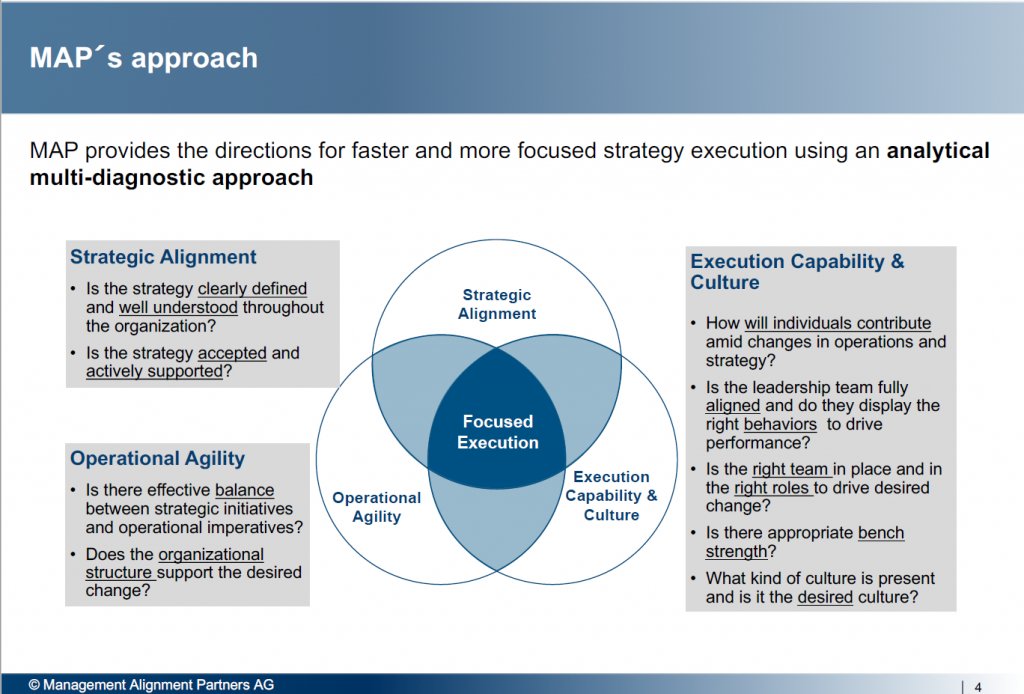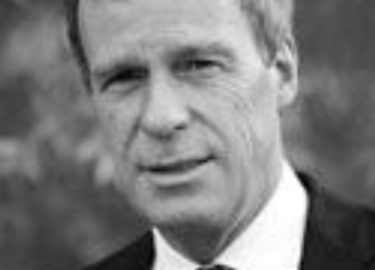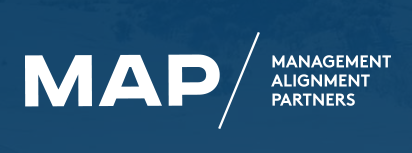Knut Revling
AmCham International Leadership Series
Knut Revling co-founded Management Alignment Partners (MAP) with Derek Leebaert in 2003-2004 to address a gap in the consulting industry – a lack of firms that focus on strategic alignment and strategy implementation.
MAP has since expanded to twenty-one cities around the world, building an enviable global client base in the process. Along the way, Revling gained extensive insight into what it takes to advise and lead in dynamic international settings, insight he shared with AmCham in the latest edition of our International Leadership Interview Series.
Where did you start? Give us a brief description of your path to where you are now, particularly in terms of international experience.
We started Management Alignment Partners some fifteen years ago. We began by looking at the international marketplace for consulting and trying to find gaps in that marketplace.
At that time, I had already been working twenty years in the consulting business and knew I couldn’t just start another copy of other management consulting firms. If you’re doing the exact same thing as someone else, then you’re already redundant.
In sum, if you want to start something new, you have to be special. You have to be different.
So, what we did is we looked at the major consulting companies in the strategic area, companies like McKinsey, Boston Consulting, and Bain. They’re all over the world and they do a great job. And then we looked at executive search companies like Spencer Stuart, Russel Reynolds, and Korn Ferry, and we saw that they were doing a great job operating globally as well.
By studying these industries from both sides very carefully, we found out that there is nothing in between them – no firms in between strategy and executive search.
Therefore, we did something that is fundamentally different than strategy formulation. We focused on the implementation of strategy. The alignment of the strategies you get from a management consulting firm like Bain with the executives you’ve hired from working with a company like Korn Ferry.
So, that was how we started, and why we originally called the company Management Assessment Partners. The problem with assessment though, is that the word is quite broad – it could mean anything, really.
That led to some discussion over the years between the American and German partners over naming the company assessment or alignment, and it eventually became a big debate! So finally, we decided to call it alignment because aligning executives to strategy is at the core of what we do.
That debate underlined the fact that we didn’t want this to be a typical Norwegian or American or German company – we wanted to be an international company.
It was critical to our approach to develop a broad perspective and cultivate a diversity of ideas. We knew that if we had an assignment, we didn’t want to have ten Norwegian consultants or ten American consultants, we wanted to have partners from all over the world who could contribute unique perspectives and optimize our analyses for each and every client.
As a leader, how did you build that global presence? What challenges have you had to overcome in terms of expanding internationally?
I worked for Ward Howell International, which was one of the largest executive search firms out of New York at that time, in addition to Korn Ferry’s predecessor and for six years as a partner for AT Kearney. All in all, when you work so many years in international consulting firms, you develop a global network, and you really find out what is important to management.
For me, the vital part in expanding our company and recruiting new consultants was finding people that had the same commitment to quality and ethics that I had. Our approach was to find consultants that I knew from the past that lived up to these standards, and that had the personal profile we wanted. These things were much more important than finding someone who was from one country or another.
The guiding question was always, “Who fits in and who brings something to future clients?”
“It was critical to our approach to develop a broad perspective and cultivate a diversity of ideas. We knew that if we had an assignment, we didn’t want to have ten Norwegian consultants or ten American consultants, we wanted to have partners from all over the world who could contribute unique perspectives and optimize our analyses for each and every client.”

With seven different nationalities represented among your consultants, how do you as a leader build team morale, foster creativity, and overcome cultural differences between staff members?
It’s something that also boils down to team chemistry. If you want to work together with people, there are things you have to respect. There are certain rules here and there and certain commitments from the client that you have accept. You have to understand people, respect them, and collaborate with them.
If you have a team of several consultants working on a particular project, doing a strategic alignment, then it is important that each of these consultants can work as a team member and share opinions and analysis with each other.
All in all, when it’s our job to analyze how clients are working together in teams, we must work as a good team ourselves. If we can’t do it, then how would a client expect us to do that for them? I think it’s critical to really define what is important when you pick someone so that you find the person with the skills, attitude, and know-how to be successful in a global team like we have at MAP.
Have you been in situations where you get a project in a country you haven’t been before or it’s a little tricky to maybe adapt to what can be a significantly different way of doing business? Or do you typically bring on consultants who come from that country if you have a new project?
Yes, I can give you an example. We had an assignment in Vietnam last year that was quite complicated. We previously did not have a consultant who could speak Vietnamese, which led to some difficulties.
That, of course, brings up a decision. You can have a translator participate, but if you do that, there is also a risk that you put a filter between you and your client. You don’t necessarily get the right feeling for what they’re saying, those little nuances that really make a difference, and you can then end up not getting honest information from the executive.
But, at the same time, it is difficult to have consultants in every single part of the world. When you have a lot of experience, however, you find excellent people in different places. For example, right now, we have an upcoming project in Brazil, so I’m currently in contact with two top-level consultants there because we need both the local experience and Portuguese language ability.
A key component of hiring for us is the extensive selection and interview process we undertake to find new candidates for consulting roles.
We conduct two interviews for each candidate. The first is always in the mother tongue, and then the second is English. In certain cases, like Vietnam, that meant we had to bring in a translator. That took a lot more time, maybe not quite as efficient, but we knew it was needed, and the need was reflected in the final outcome, which was very good.
“The world is moving fast here – you’re either on the train going somewhere or you’re left behind on the platform. Digitalization impacts everything – from how you interact with customers to finding hidden inefficiencies in your business model.”

Building off of that, you’ve probably seen that there have been a number of studies coming out, both in academia and in various business publications, that say that diversity enhances a company’s bottom line. How has your diversity given you a competitive advantage? And how have you leveraged that diversity as a competitive asset when you are competing globally for new projects?
As we’ve touched on a bit before, we always bring in people from different countries on each project. We know from experience that clients like the wide range of perspectives you get when you bring in a team of consultants from, for example, Singapore, Brazil, France, and Germany.
That diversity is very important when it comes to achieving calibration on our project teams. We all have to come to a unanimous agreement on a strategy, something that leverages our diversity to ensure that we have the most robust, in-depth analysis possible.
Do you see a lot of firms in your industry taking that approach?
I haven’t so far. Our international focus is something that is highly unique to MAP and gives us and our clients a distinct competitive advantage.
I think it is also important to note industry diversity – among our consultants we have specialists in a wide range of industries, so we can be confident our client knows they’re getting someone at the top of their field. We also have fifteen advisory board members who have run or sat on the boards of large organizations around the world, giving us an even broader range of perspectives and experiences to draw upon.
You often work with large global corporations in terms of M&A and corporate restructuring. What international challenges pop up during these processes?
I think the biggest challenge can be accountability, particularly when you’re working with a large corporation that is operating in different time zones and bringing together a wide range of business cultures and languages. You really need to have one person who is accountable, but when you go through these processes on a global level it can be easy to lose sight of that.
Think about a ship for example. If it sinks, who is responsible? On a ship, just like in a business, there must be one person who is in charge, one person who is responsible. Everyone wants to be that person when things are going well. When things are going poorly, however, something that often leads to corporate restructuring, then the opposite happens, and then you have to really go in and figure out who should be responsible for what.
Now we’re going to shift gears a little bit and talk about a hot topic in the business world – digitalization. What challenges have you seen in regard to implementing digitalization strategies on an international scale?
Well, I think the first challenge is defining what digitalization means or, in particular, what does digitalization mean for your company. If you ask ten people to define digitalization, you’ll likely get back ten different answers. So, it is important to get everyone on the same page as to the role of digitalization in your company.
Then you need to look at company culture. Can this company truly implement the strategy they’d like to implement? What are the obstacles? What are the challenges? The key is then to figure out what kind of digitalization we can expect out of this company, where we can see this company going in terms of digitalization in three to five years, and how do we get there.
That gets down to, “can you scale digitalization properly and sell it internally?” Making sure people understand it – there’s an international aspect to that too, in terms of making sure that each member of the team is using the same terminology and understands exactly the strategy being discussed. This is one of the reasons we find it so important to work with local consultants.
I think we see this interest in digitalization because companies are really understanding the importance of embracing and formulating digital strategies that work for their specific business. The world is moving fast here – you’re either on the train going somewhere or you’re left behind on the platform. Digitalization impacts everything – from how you interact with customers to finding hidden inefficiencies in your business model.
“If I work with an American, for example, they have a particular way of communicating and setting expectations. The same for people from anywhere else in the world. If I’m not sure what they’re saying, however, and I don’t take the time to ask, to clarify, then I won’t necessarily get the information I need to meet and exceed expectations. So, communication and being upfront is critical! Don’t underestimate it!”

In terms of adopting these strategies, do domestically based companies have advantages over large, multinational companies in terms of efficiently and successfully implementing digitalization strategies?
I think this really depends on leadership – on the CEO. The focus they put on digitalization can help overcome the cultural, linguistic, and strategic differences of opinion you may find in a larger company. You must be interested in digitalization. But having said that, we have noticed a bit of a slowdown in the past half year – companies want to take the time necessary to develop a sophisticated plan of attack instead of trying to react as quickly as possible to new trends.
If the willingness, attitude, and awareness are there within an organization, it will likely go well, regardless of what country a company comes from.
Exactly, leadership is key. What do you think are the shared traits that make someone a good international leader? On the other hand, what are some big mistakes leaders should avoid?
I have had the opportunity to see many excellent leaders, and I have also had to opportunity to interact with leaders who made me question how they had made it to that position in the first place.
I think what is important is that you have very strong communication skills, starting with the executive team. There needs to be good teamwork at the top, and these executives understand who they are reporting to and what the expectations of them are. A CEO needs to make it clear what they expect their team members to deliver. And to do that, you really have to be accessible to them, taking the time to talk to them and develop chemistry.
This process is more complicated, however, when it happens in an international, cross-border setting. If I work with an American, for example, they have a particular way of communicating and setting expectations. Each country is unique in their communication style, and this is also true in business. If I’m not sure what they’re saying, however, and I don’t take the time to clarify, then I won’t necessarily get the information I need to meet and exceed expectations. So, communication and being upfront is critical! Don’t underestimate it!
Secondly, there’s drive. There are some leaders who are satisfied and begin to relax when they hit one hundred million dollars or another financial target. I don’t think that’s good enough – maybe you could be doing two hundred! So, it’s important to have that drive, to reach for higher targets, to go the extra mile, because that means you’re likely being proactive as a leader, instead of reactive. You’re ahead of the curve.
In regard to bad leaders…well, this is probably a little personal, but complaining. If you have leaders that are complaining about their colleagues, particularly in an open setting, that is a problem. I don’t like that. That can mean that you as a leader have not taken the time to clearly set expectations or proactively talk to people about issues.
Another is leaders that do not set clear targets. If you don’t do that, how can people understand where the company is going? In a large corporation, this is even more important.
Do you think there is something unique about being a leader in Norway as compared to other countries?
If you look back twenty years ago, back to the 1990s, there was a lot of talk about “European executives,” executives who could manage all over Europe. Around that time, a number of different companies started sending people abroad just to do it, as just a box to tick off as they progressed through the company.
I think that can be problematic sometimes. I think you should send an executive to another country because they have a specific skill that’s needed there or an interest in the country. It becomes difficult when people feel they must move to another country to get to the next step, and then you suddenly end up as the top person in a country you don’t have much experience with. I have seen several cases where sending someone abroad has created complications. It is always a large adjustment.
This is to say that there is certainly something unique about being a leader in Norway, just as there is something unique about being a leader in every country around the world.
There are indeed examples international leaders struggling in other countries. There are also, however, many success stories. What type of leader can be successful leading a company in another country?
The most important thing a leader can do is learn the language. You find that people who speak the language can typically adjust to, and incorporate, the culture faster than those who cannot. It takes time to learn a language, but it helps a lot.
I can give you an example. If you are an American working in France, you’ll get much further if you speak French. Same as a Swede in Germany. If you can speak German instead of English – that can help you build stronger relationships

What do you anticipate being the biggest challenges for MAP over the course of the next decade?
As we’ve discussed, the world is changing very quickly. As a small organization with thirty partners, we are quite agile and can adapt. It is still important, however, to be proactive. That’s why we evaluate every single project after completion. If we notice a new trend emerging from that particular project, we make a note of it and align our practices to account for it in the future. If we see a new need emerging – we plan for that.
What are some projects that you are excited to talk about right now?
We recently had a project with a large German-French corporation, and there were a lot of politics, a lot of international dynamics at play, in addition to resistance when it came to change – the German side and the French side saw things in their own way.
So, the chairman brought in some Americans to get involved in the project and bring in a neutral perspective, in addition to some of our people. The Americans operated at a much faster speed than both the Germans and the French were used to, and that created a clash. For example, it took one of the new American executives four weeks to get a new phone because of the practices within the German-French company – people were traveling, people had sick leave and such. There’s a different cultural expectation around that in the US, and, therefore, it is important to take that into consideration.
If you could give your 20-year-old self some advice, what would that be?
First and foremost, believe in something. Have a certain personal goal you want to achieve.
Secondly, build a strong network, a network that goes across borders. That is always important, you know, to have a network of people who can help and advise you.
And then there’s communicating. Learn languages! Three to four if you can. Another important aspect, however, is speaking up. If you do not understand your expectations your boss has set for you – talk to them. Always communicate with your colleagues and superiors so you know what they expect from you and you can exceed their expectations.
Lastly, have an international mindset. A part of that is, of course, learning the languages, but another part of that is consciously using your language skills to seek out other perspectives. For example, if you live in Norway and only listen to or watch NRK – that’s a very limited perspective. If you’re American and only look at CNN, that’s very limited, too. Look at ZDF or DW in Germany or TF1 in France. Try to pick up news from different cultures!



